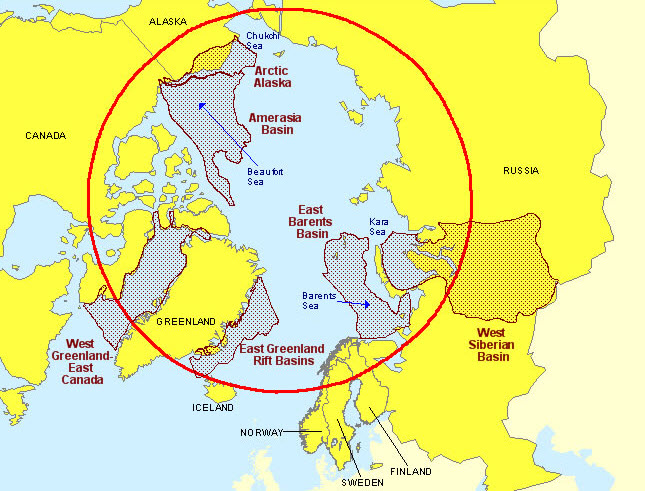
|
||||||||||||
|
|
|
Arctic oil and natural gas resources
January 20, 2012 The U.S. Energy Information Administration (EIA)-The Arctic holds an estimated 13% (90 billion barrels) of the world's undiscovered conventional oil resources and 30% of its undiscovered conventional natural gas resources, according to an assessment conducted by the U.S. Geological Survey (USGS). Consideration of these resources as commercially viable is relatively recent despite the size of the Arctic's resources due to the difficulty and cost in developing Arctic oil and natural gas deposits. Studies on the economics of onshore oil and natural gas projects in Arctic Alaska estimate costs to develop reserves in the region can be 50-100% more than similar projects undertaken in Texas. Profitable development of Arctic oil and natural gas deposits could be challenging due to the following factors: •Equipment needs to be
specially designed to withstand the frigid temperatures. Overlapping and disputed claims of economic sovereignty between neighboring jurisdictions also could be an obstacle to developing Arctic resources. The area north of the Arctic Circle is apportioned among eight countries—Canada, Denmark (Greenland), Finland, Iceland, Norway, Russia, Sweden, and the United States. Under current international practice, countries have exclusive rights to seabed resources up to 200 miles beyond their coast, an area called an Exclusive Economic Zone (EEZ). Beyond the EEZ, assessments of "natural prolongation" of the continental shelf may influence countries' seabed boundaries. Along with economic and political challenges, environmental stewardship and regulatory permitting may also affect timelines for exploration and production of Arctic resources. Environmental issues include the preservation of animal and plant species unique to the Arctic, particularly tundra vegetation, caribou, polar bears, seals, whales, and other sea life. The adequacy of existing technology to manage offshore oil spills in an arctic environment is another unique challenge. Spills among ice floes can be much more difficult to contain and clean up than spills in open waters.
|


